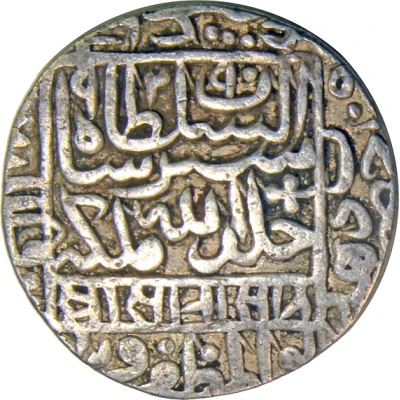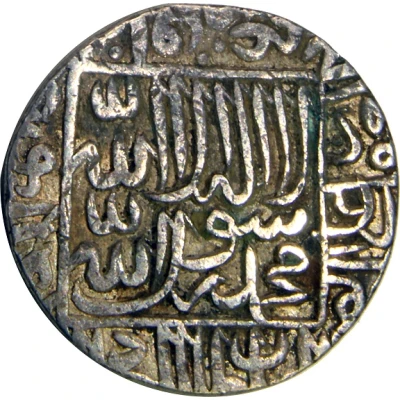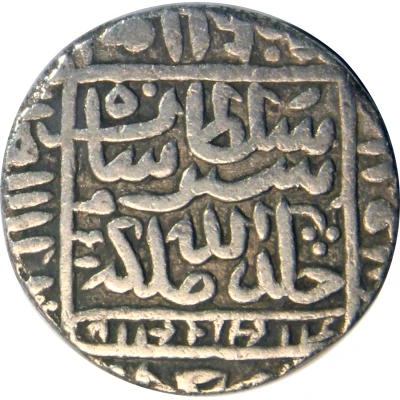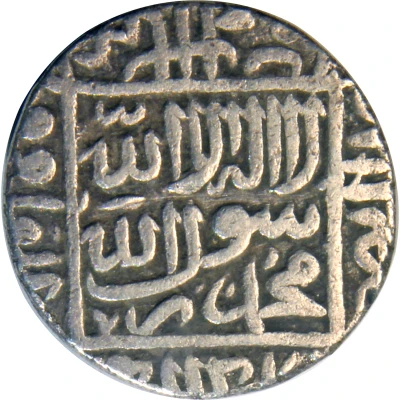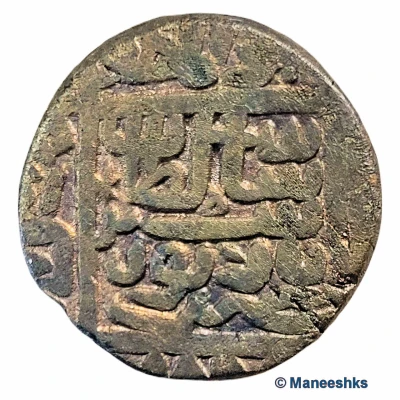
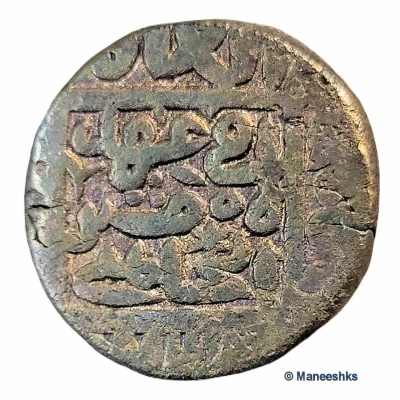

© Maneeshks (CC BY-NC)
1 Paisa - Sher Shah Suri Narnol
| Copper | 20 g | 23.40 mm |
| Issuer | Sur Empire (Indian Sultanates) |
|---|---|
| Sultan | Sher Shah Suri (شير شاہ سوري) (1539-1545) |
| Type | Standard circulation coin |
| Years | 950-952 (1543-1545) |
| Calendar | Islamic (Hijri) |
| Value | 1 Paisa |
| Currency | Suri (1539-1545) |
| Composition | Copper |
| Weight | 20 g |
| Diameter | 23.40 mm |
| Thickness | 6.07 mm |
| Shape | Round (irregular, Weight varies 20-21g) |
| Technique | Hammered |
| Orientation | Coin alignment ↑↓ |
| Demonetized | Yes |
| Updated | 2024-10-05 |
| Numista | N#369686 |
|---|---|
| Rarity index | 91% |
Reverse
Fi `ahd al-amir al-hami al-din al-dayyan
Translation: In the time of the amir, the protector of the religion of the judge of good and evil
Edge
Plain
Comment
Mint: NarnolSher Shah Suri (1472, or 1486 – 22 May 1545), born Farīd Khān, was the founder of the Sur Empire in India, with its capital in Sasaram in modern-day Bihar. Sher Shah was of Pashtun ethnicity, with his name denoting his tribe, Sur. Sher Shah took control of the Mughal Empire in 1540 CE. After his accidental death in 1545 CE, his son Islam Shah became his successor. The influence of his innovations and reforms extended far beyond his brief reign; his arch foe, Humayun, referred to him as “Ustad-I-Badshahan”, teacher of kings. In the seven years of his reign he never lost a battle.
Sher Shah introduced a sound coinage throughout his kingdom based on the silver rupee and the copper paisa. He started his coinage in modern day states of Bihar and Bengal with silver tankas and rupees. The weights of these vary - the tankas were no more than 10.8g whereas the rupees that have survived are between 11.2 and 11.5g. His other innovation was introduction of a copper paisa weighing between 20-21g.
Interesting fact
One interesting fact about the Sher Shah Suri (Narnol) 1 Paisa coin is that it was issued during a time of great cultural and artistic achievement in the Sur Empire, which was known for its beautiful architecture, literature, and music. Despite being made of copper, this coin was designed with intricate details and calligraphy, showcasing the advanced craftsmanship of the era.
